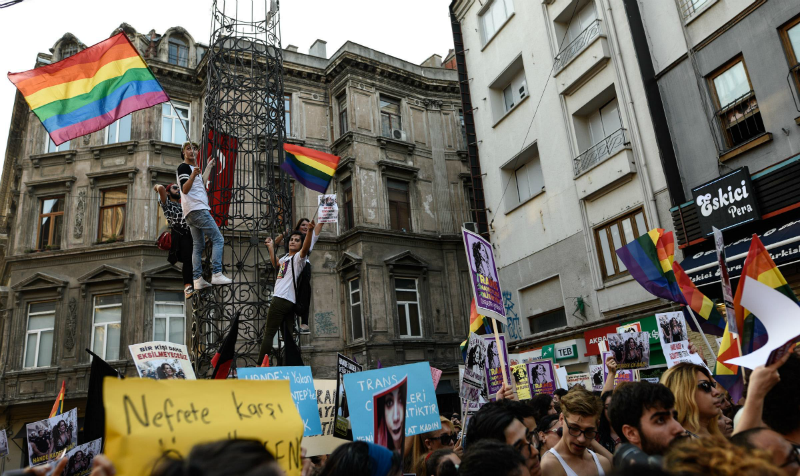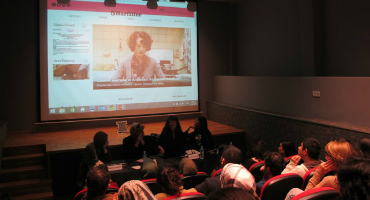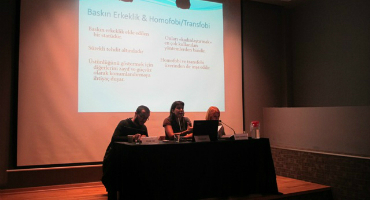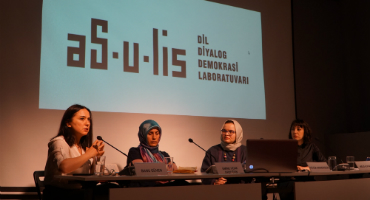Photo: zete.com
The report titled Discriminatory Discourse in News Stories on Murders of Transgender Women aims to explore discriminatory discourse against transgender people in terms of the way murders of transgender women are covered. We examined 28 news articles with the method of critical discourse analysis; these articles have been selected as examples from the news articles covering the murders of transgender women that were published in national print newspapers between January 2013 and August 2016. The focus of our examination was the instruments that are used for reinforcing discrimination and prejudices against transgender women.
In most of the articles we found, transgender murders are legitimized, trivialized and detached from its social context by preference of sources, structure of the stories and choice of words. In the first part, we examined the articles on the basis of the way sources are selected and discussed its consequences. In the second part titled ‘structure of the stories’, we focused on the narration of the articles by regarding the frame of the articles, the way stories are presented and in which context the murder is depicted. In the third part, we focused on how the choice of words in articles regenerates discriminatory discourse against transgender people. In the final part, we featured positive examples that cover the murders with a rights-based approach.
In conclusion, our examination revealed that articles in print media covering transgender murders generate a discriminatory and dangerous discourse against transgender people. In most of the articles we examined, the way for different forms of violation against transgender people and new hate murders is paved by omission the possibility of a hate murder and normalization of the murders. When a crime is committed against a disadvantaged group, journalists should adopt a rights-based journalism and consider the possibility of a hate crime in covering such crimes. Otherwise, when discriminatory discourse against a victim having socially disadvantaged position is regenerated, a vicious circle would be created by giving way to new hate crimes and forms of violence through this discourse. In this regard, transgender murders should not be considered independently of forms of systematic discrimination and violence to which LGBTIs are subjected in social life, state mechanisms and before the law; in fact, the representation of LGBTIs in media is also a part of this issue. Given the relation between media and social perception, a discourse that doesn’t violate the rights of transgender people and reinforce prejudices against them would contribute to decrease of discrimination against transgender people in social life.
About the Media Watch on Hate Speech project
The overarching aim of the study ‘Media Watch on Hate Speech’, which has been carried out by the Hrant Dink Foundation since 2009, is to contribute to combating racism, discrimination and intolerance in Turkey. Taking into account the importance of civilian oversight on the media, as one of the instruments for producing and reproducing racism, discrimination, and alienation; the specific goal of this study is to foster newspapers’ respect for human Rights and differences, draw attention to the discriminatory language and hate speech targeted towards people and groups about their certain identity characteristics; and thereby raise awareness.
As part of the study carried out by the Foundation to achieve the abovementioned goals, the national and local press are monitored and news stories and opinion columns that feature discriminatory, alienating and target-making discourse are identified, analyzed and brought to public attention through reports.
As of 2013, case studies for discriminatory discourse have been included in this systematic media monitoring study. A different issue on the public agenda is scrutinized every four months and a specific research methodology is developed for the topic to conduct a discriminatory discourse analysis. The aim of these analyses is to examine more indirectly constructed discourses that voiced discriminatory messages more implicitly than hate speech. Thematic subjects of discriminatory discourse reports published so far are as follows:
- Black Sea Visit of HDK and BDP Representatives
- Discriminatory Discourse of the Print Media in the Coverage of Gezi Park Protests
- The Alevi File: Not Explicitly Negative News, But Still Discriminatory
- The Armenian Genocide Remembrance Day One Year Left to the 100th Commemoration
- The Operation Israel Launched against Gaza and Discriminatory Language towards Jews in Media
- Discriminatory Discourse against Syrian Refugees in Local and National Press
- April 24 Armenian Genocide Remembrance Day in Print Media 1995-2015
- Four Day War in Nagorno-Karabakh and the Discriminatory Discourse Analysis of the Media in Azerbaijan, Armenia and Turkey





